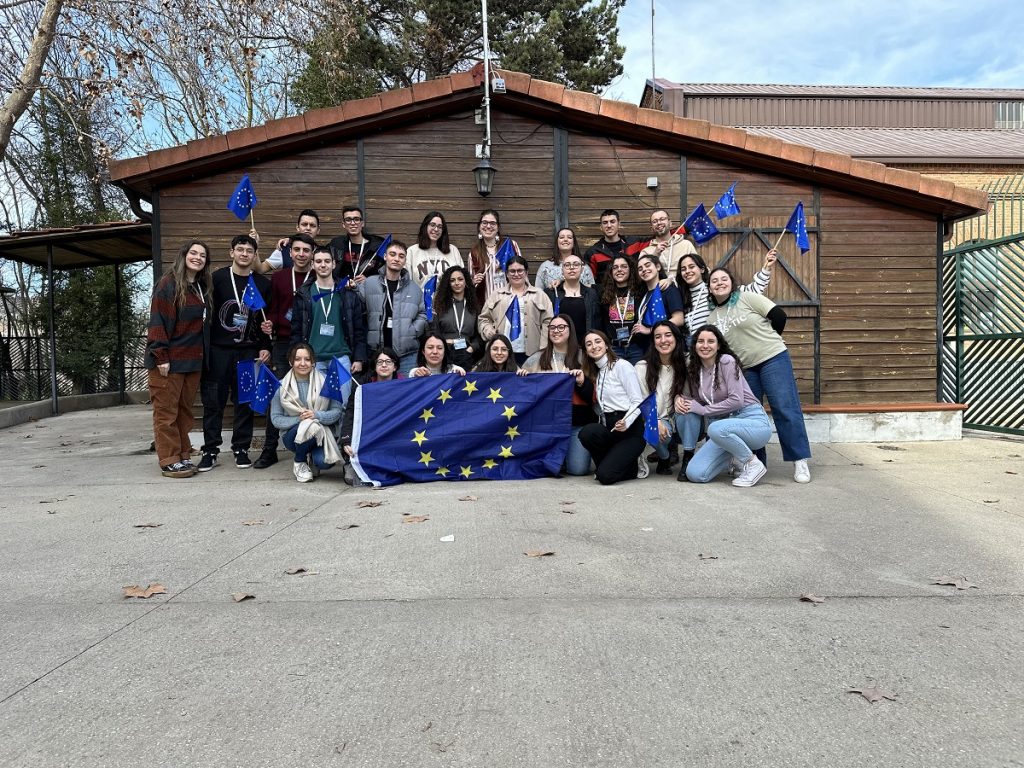Young people meet to simulate the legislative process of the European Union
As part of an effort to understand and actively participate in the legislative process of the European Union, young people from different entities from Spain, Italy and Portugal have joined together in Valladolid to carry out a simulation of the ordinary European legislative process. This event, organized in the framework of the GAMEUFYING project, committed to citizen participation in European affairs, allowed the participants to immerse themselves in a fascinating role-playing simulation of parliamentarians and members of the Council of the European Union.
The main focus of this simulation has been the debate on the use of proposed laws, arising from a European company and a women’s social collective: artificial intelligence and the issue of the Islamic headscarf, respectively.The young people have taken on specific roles, representing different political parties and member states and facing the complexities of the ordinary EU legislative process. Among them were 4 political parties created fictitiously with the ideologies of the Parliament to lay the groundwork for the process, while the Council was composed of countries such as Italy, Portugal, Spain, Greece, Belgium and the Netherlands.
During the simulation, several amendments related to the regulation of artificial intelligence and Islamic headscarf policies were presented.Participants have vehemently debated the potential social, ethical and cultural impacts of these proposals, reflecting the diversity of opinions and perspectives within the European Union.

“Getting to know the political reality better, which is very important, because this kind of information is not taught in schools (I had no idea how the work was done). I also met a lot of great people!” says one of the participants at the end of the meeting, “It gives us the opportunity to better understand how the EU works and how our voices can influence the policies that affect us all”.
The event highlighted the importance of civic engagement and youth participation in building a more inclusive and equitable European future. At the end of the simulation, participants were inspired and motivated to stay involved in the political debate and the defense of fundamental European values, especially with the upcoming European Parliament elections in June.This European meeting in Valladolid was not only an opportunity to learn about the EU legislative process, but also a space to foster intercultural dialogue and collaboration between young people from different countries and backgrounds.Undoubtedly, it leaves a significant mark on the path towards a more active and empowered European citizenship.